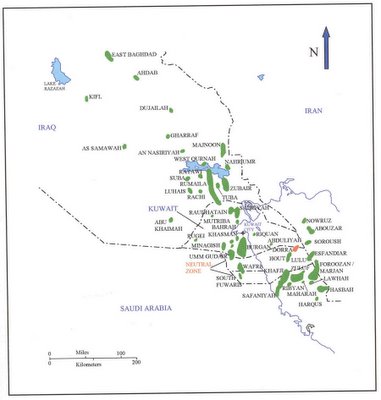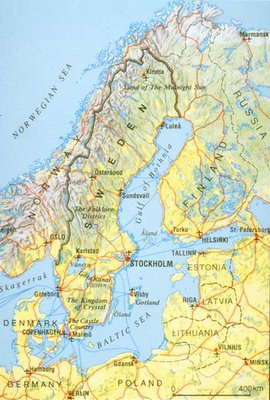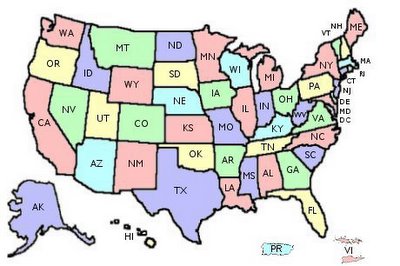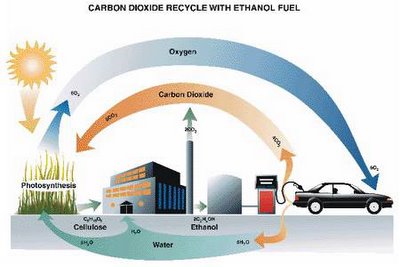 Petrolium oil products and fuels have been in use for over one hundred years. The primary fuel for all motor vehicles. No news there, right? But is it the only fuel available? Is it the best? Where does it come from?
Petrolium oil products and fuels have been in use for over one hundred years. The primary fuel for all motor vehicles. No news there, right? But is it the only fuel available? Is it the best? Where does it come from? Well, most of it, comes from the Middle East, but not all. Middle easter oil is just the most "accesable" oil reserves in the world. There is also oil in North America, the North Atlantic, South America and the Gulf of Mexico. But a large portion of our oil comes from this vilotile armpit of the world, the sliver of land connecting Africa to Asia, once the birthplace of great cultures and religions, now a powder keg waiting for a spark. This area of the world which if you look at a map or globe, is not very large at all, keeps the rest of the world jumping through hoops, because of oil. Let's face it, if it wasn't for the oil, not many of us would give a damn about the place. But what are the alternatives? What would we do without Arab oil?
Well, most of it, comes from the Middle East, but not all. Middle easter oil is just the most "accesable" oil reserves in the world. There is also oil in North America, the North Atlantic, South America and the Gulf of Mexico. But a large portion of our oil comes from this vilotile armpit of the world, the sliver of land connecting Africa to Asia, once the birthplace of great cultures and religions, now a powder keg waiting for a spark. This area of the world which if you look at a map or globe, is not very large at all, keeps the rest of the world jumping through hoops, because of oil. Let's face it, if it wasn't for the oil, not many of us would give a damn about the place. But what are the alternatives? What would we do without Arab oil? Bio Fuels, like Ethanol and BioDiesel that's what! It amazes me, that as far back as 1916 Henry Ford talked about Petrolium based fuels running out and proposed Ethanol as an alternative. Even saying it would be a way to improve the plight of US farmers, yet now it's 2006, 90 years later, and we're still sitting with our thumbs up our rears, wondering how to break our dependance on foreign oil.
Bio Fuels, like Ethanol and BioDiesel that's what! It amazes me, that as far back as 1916 Henry Ford talked about Petrolium based fuels running out and proposed Ethanol as an alternative. Even saying it would be a way to improve the plight of US farmers, yet now it's 2006, 90 years later, and we're still sitting with our thumbs up our rears, wondering how to break our dependance on foreign oil. A few weeks ago, I read that Brazil was passing legislation requiring that all vehicles sold there, be bio fuel capable. Realizing that unlike their neighbor Venezuela, they did not have petrolium, but do have the ability to grow crops capable of producing Ethanal based fuels. By the way, did you know that Venezuela and Mexico are members of OPEC? But back to the point, Brazil saw that they had a weekness and a possible way to decrease that while improving their own economy.
A few weeks ago, I read that Brazil was passing legislation requiring that all vehicles sold there, be bio fuel capable. Realizing that unlike their neighbor Venezuela, they did not have petrolium, but do have the ability to grow crops capable of producing Ethanal based fuels. By the way, did you know that Venezuela and Mexico are members of OPEC? But back to the point, Brazil saw that they had a weekness and a possible way to decrease that while improving their own economy. Now today, I read in AutoBlog, that Sweden, tiny little Sweden, has started along their own path to independance from oil. They plan to make the swithc to biol fuels by the year 2020. The Swedes are a technically proficient economy, but not a huge land mass. I wonder if they have the farm land to grow enough bio fuel?
Now today, I read in AutoBlog, that Sweden, tiny little Sweden, has started along their own path to independance from oil. They plan to make the swithc to biol fuels by the year 2020. The Swedes are a technically proficient economy, but not a huge land mass. I wonder if they have the farm land to grow enough bio fuel? So I wonder where that leaves the US? I mean, we're dependant on foreign oil, but we have vast tracts of land, and a massive agricultural base. I've always been told that we pay farmers not to grow certain crops, and paid subsidies for that. But on the other hand, we have situations where farmers over the last 20 years or more, have been loosing the family farm, because they've become so sensative to crop price fluctuations and overextended on loans. Couldn't we grow enough corn or soy beans to supply a substantial amount of bio fuels? Wouldn't one of the effects be the stabilization of our agricultural sector? If farmers are selling crops to be made into fuel, then wouldn't we save all the federal subsidies? I mean it sounds like a win win situation.
So I wonder where that leaves the US? I mean, we're dependant on foreign oil, but we have vast tracts of land, and a massive agricultural base. I've always been told that we pay farmers not to grow certain crops, and paid subsidies for that. But on the other hand, we have situations where farmers over the last 20 years or more, have been loosing the family farm, because they've become so sensative to crop price fluctuations and overextended on loans. Couldn't we grow enough corn or soy beans to supply a substantial amount of bio fuels? Wouldn't one of the effects be the stabilization of our agricultural sector? If farmers are selling crops to be made into fuel, then wouldn't we save all the federal subsidies? I mean it sounds like a win win situation. How about this, if we're growing more crops, that produce more oxygen, and burning bio fuels that release less polutants, aren't we also helping our ecology? Wow, another win win situation.
How about this, if we're growing more crops, that produce more oxygen, and burning bio fuels that release less polutants, aren't we also helping our ecology? Wow, another win win situation.I know I'm oversimplifying this, nothing is that clear cut is it? I mean I keep on hearing how bio fuels are not as good as petrolium, but the funny thing is I also hear that they perform just as well. Who's right? I don't think it matters really. Because even if you got slightly worse milage from bio fuel, which every indicator does not support, we would still be fuel independant.
So I'm glad that GW Bush supports bio fuels, I'm thrilled that Willie Nelson supports bio fuels, I love the fact that GM is doing a media blitz on their E85 vehicles and Bill Ford is blazing the "Way Forward" by "Driving American Inovation," but what is that really getting us? I mean Ford has been selling "Flex Fuel" vehicles for years, I've known people who drove them, even if they didn't realize their vehicles were flex fuel, but what good is that if you can't find the fuel?
Will it be another 90 years before we can fill our tanks without supporting terrorist or being held fiscal hostage by fascists in robes, who are calling us the "Great Satan" on one hand, while spending our money with the other? What we need now is an infrastructure to make and distribute bio fuels, and possibly legislation demanding that all vehicles sold from now on are capable of running on said fuels.




2 comments:
Converting waste biomass into fuel is definitely a win, so give a big thumbs-up to your hippie neighbor filling up with fast food grease. But that's unlikely to ever be more than 1-2% of fuel needs. Meanwhile growing plant material exclusively for fuel has a lot of problems. It takes energy to plant, grow, and harvest biomass, then it takes more energy to convert to biofuel. Plus, converting hundreds of thousands of square miles of land to grow biomass would be hell for the environment.
GM promotes E85 because they have nothing to show for all their hydrogen work (unlike Honda and Mazda) so they need a new greenwashing PR theme to counter their appalling fuel efficiency. And I suspect the influence of Archer Daniels Midland, purveyor of corporate jets to US politicians in exchange for massive corporate welfare.
More on the pros and cons of biofuel in this Wikipedia article.
Skier, welcome to a new reader I hope. I know that it's an uphill battle, but in the end it could be made profitable and practicle. Fosil Fuels aren't going to be around forever and if it takes 15 years, then we better start now.
GM's promotion of E85 is shameless attempt to seem green, and their new "Hybrid" system for the Saturn Vue and others is a sham. Sure it's $2,ooo cheaper than the Toyota or Ford systems, but it's not as effective either. It's a bandaid system.
I'll have to check the Wikipedia link later, thanks. Hope you'll drop in again and comment or just enjoy the read. But in reality, I don't present my posts as news, but more my opinion, and I may be mistaken from time to time, so I'm happy if someone points it out nicely.
Post a Comment